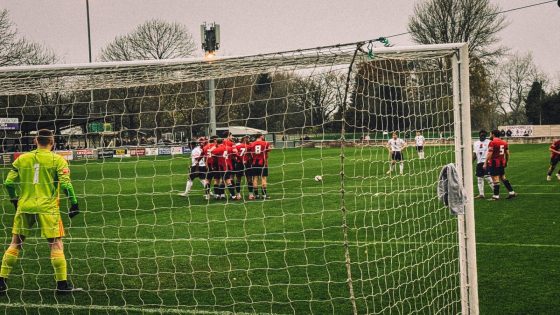From an under-13s match to a Premier League encounter, over the weekend Andy Mitten attended five football games in 48 hours.
But first, he warmed up with a Europa League taster and an interim manager’s press conference…
Thursday
George and Alex, two young PAOK fans making their first trip to Manchester, are sitting next to me on a delayed flight to Manchester for Thursday’s Europa League game between Manchester United and the Greek side. We start to talk. They are excited but nervous the flight is going to be three hours late.
They remind me of my younger self, travelling around watching football without much thought for where you would sleep. Their bed on Thursday is going to be a coach from Manchester to London. They love PAOK and their city, Salonika, and tell me 4,000 of them are going to be ultra-loud inside the stadium and ask how they will get from Manchester Airport to Old Trafford.
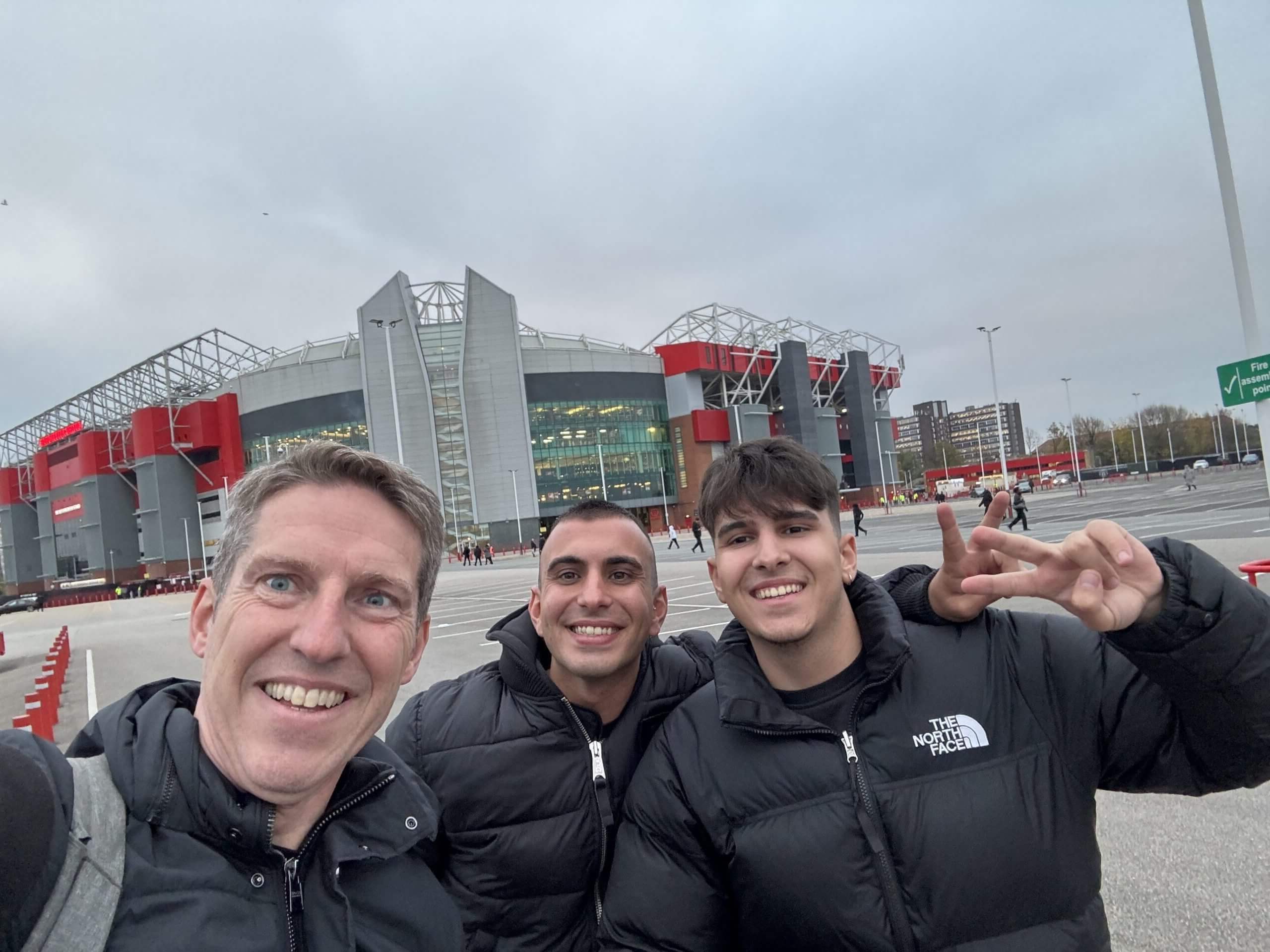
I offer them a lift and love their observations about “the grey English sky”. They are like kids seeing snow for the first time.
“The houses, they are all brown and made of brick.” As we go around the M60 orbital motorway, they ask questions like: “Why is Opel called Vauxhall here?”
Then they see Old Trafford for the first time and I remember how I felt when I did the same as a child. It was one of the greatest moments in my life.
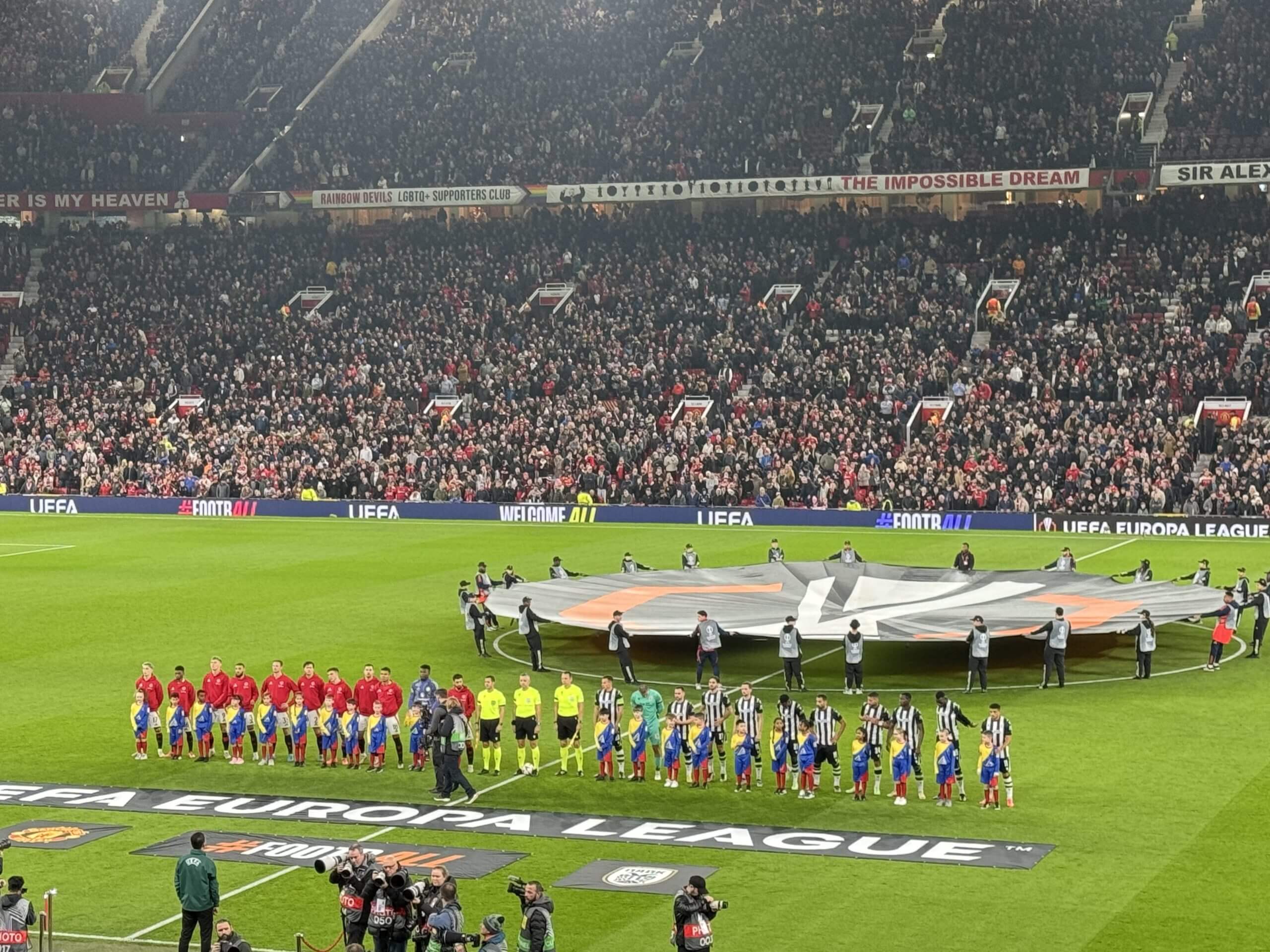
“This is like living a dream,” they say. I show them around and they leave their bags in my hire car before going to meet their mates to march… back to Old Trafford. I have a lot going on. A new book to launch, a new United We Stand fanzine on the streets and lots of games of football and people to see.
The boys are right about PAOK fans — they are so impressive that I am envious of their support. Noisy, and passionate without trying to be hooligans, they win a lot of respect in Manchester. United also offer a surprise — by winning a game of European football for only the second time in 12 matches.
Amad is the man and the two Greek boys tell me they loved the whole experience.
Friday
It’s United interim manager Ruud van Nistelrooy’s press conference at Carrington. He handles questions about his future well, he is showing he can oversee a big club — if that’s what he wants. I’ve spoken to him several times in the last few weeks as the arrival of new permanent head coach Ruben Amorim got closer.
I also had a phone call from a man near Enschede, which I appreciated. I’ve had a lot of calls from people who have been let go by United this year. This job is mad at times, but people don’t always see the human element to it, nor that not everything needs to be made public.
I also catch Jonny Evans leaving Carrington. He complains about the match ratings I’ve been giving him and that people keep coming up to him about them. I also meet one of my brothers, a former footballer who is with a work mate who was at United as a kid. “Why didn’t you make it?” I ask. “My left hook,” he replies.
I ask him who he played with and Evans was one of them. I take a photo and ask Evans if he remembered him, since didn’t everyone once play at a club?
“No way!” says Evans. “He’s a top man. He looked after me at school when I moved over from Belfast.”
Saturday
The weekend starts with early coffee with Ole Gunnar Solskjaer. He’s in Manchester, where he’s kept a home, for 36 hours to talk at a dinner. He’s enjoying life, loves coaching his daughter’s young side and being home in Norway with family after missing out on so much of that as a player and a manager. But he’s also being sounded out for jobs in professional football again.
He still watches United games. I tell him he’s my fourth favourite Norwegian. “Who is above me?” he asks. “Lars Morten Olsen from the United supporters’ club, Jens Stoltenberg, No 3 is TBC and you’re No 4.”
“I miss British humour,” he says before talking about Stoltenberg, a former Norwegian prime minister who became NATO secretary general for four terms. He sent Solskjaer good-luck messages when he was manager at Old Trafford.
I leave and go to Carrington to see United’s under-18s beat Everton 3-0. Standards are high and this team are superb. They’ve won all nine league games and sit five points ahead of Manchester City.
They’ve scored 43 and conceded only four. Manchester United’s academy is in rude health. I like the look of a midfielder Jim Thwaites and goalkeeper Will Murdock, while Chido Obi-Martin is a striker recently joined from Arsenal — and he scored four goals.
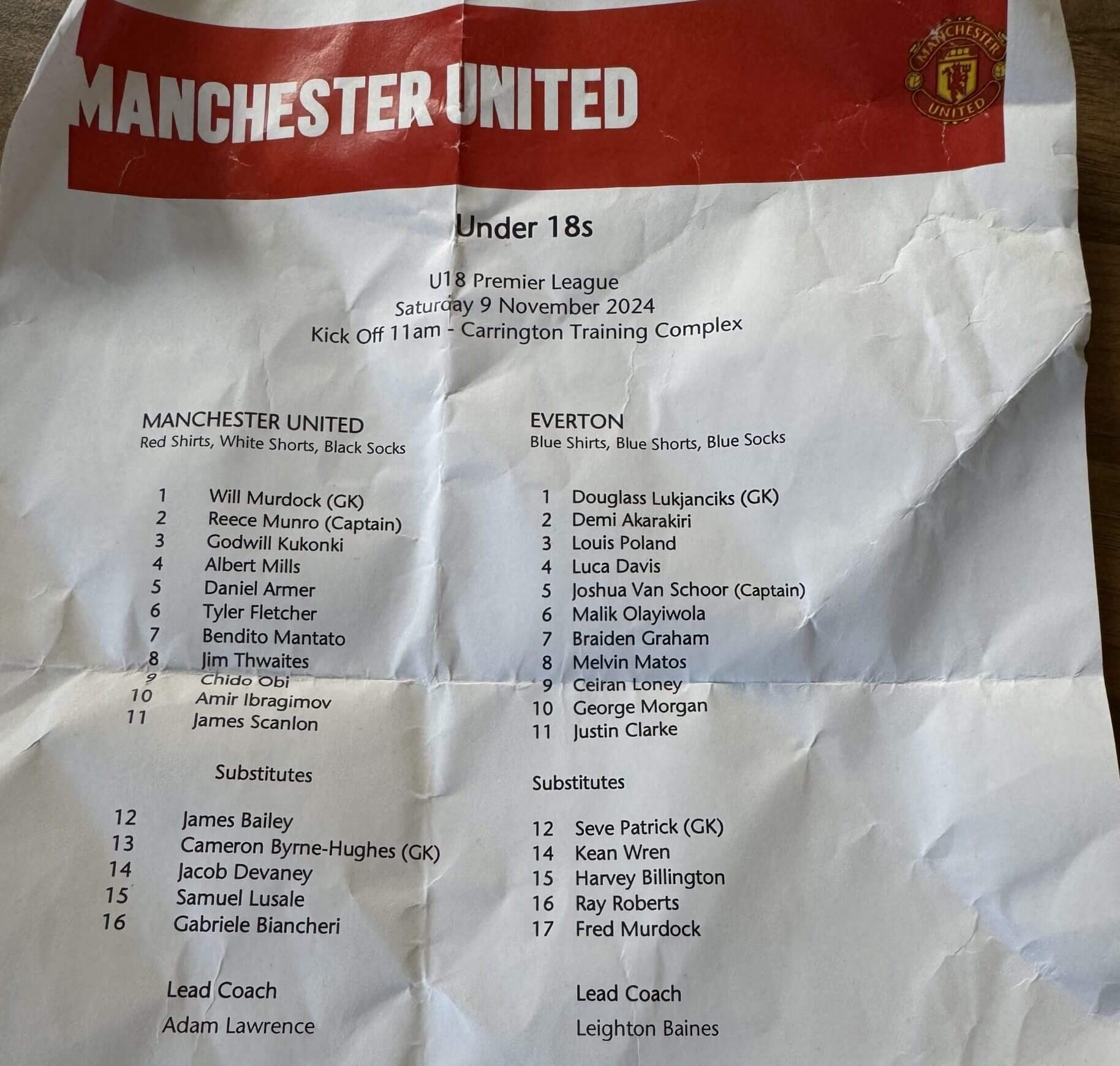
The game has been switched to a different pitch since there’s extensive construction work going on to improve the training ground. There are lots of people there: coaches, scouts and long-serving employees like Dave Bushell who has helped so many young players settle — then flourish — at United.
Trafford FC is the closest club to United and that’s my next game.
Located between Old Trafford and Carrington, a crowd of 587 attended to see their game against Wythenshawe in England’s eighth tier. The players at this level are semi-professional and it is a community club run by volunteers.
Trafford were averaging 200 fans for home games before Covid, but, like many football clubs at all levels, have experienced a rise in attendances in the last four years. Wythenshawe gave the world Cole Palmer, Marcus Rashford, and Phil Foden was born nearby.
Trafford win 2-0. It’s enjoyable, the opposite of Premier League football.
Fans can have a drink by the side of the pitch or get pie, peas and gravy for £4, with a hot Vimto (the distinctive fruit drink is a hugely popular Ramadan drink of choice globally, but originates from Manchester).
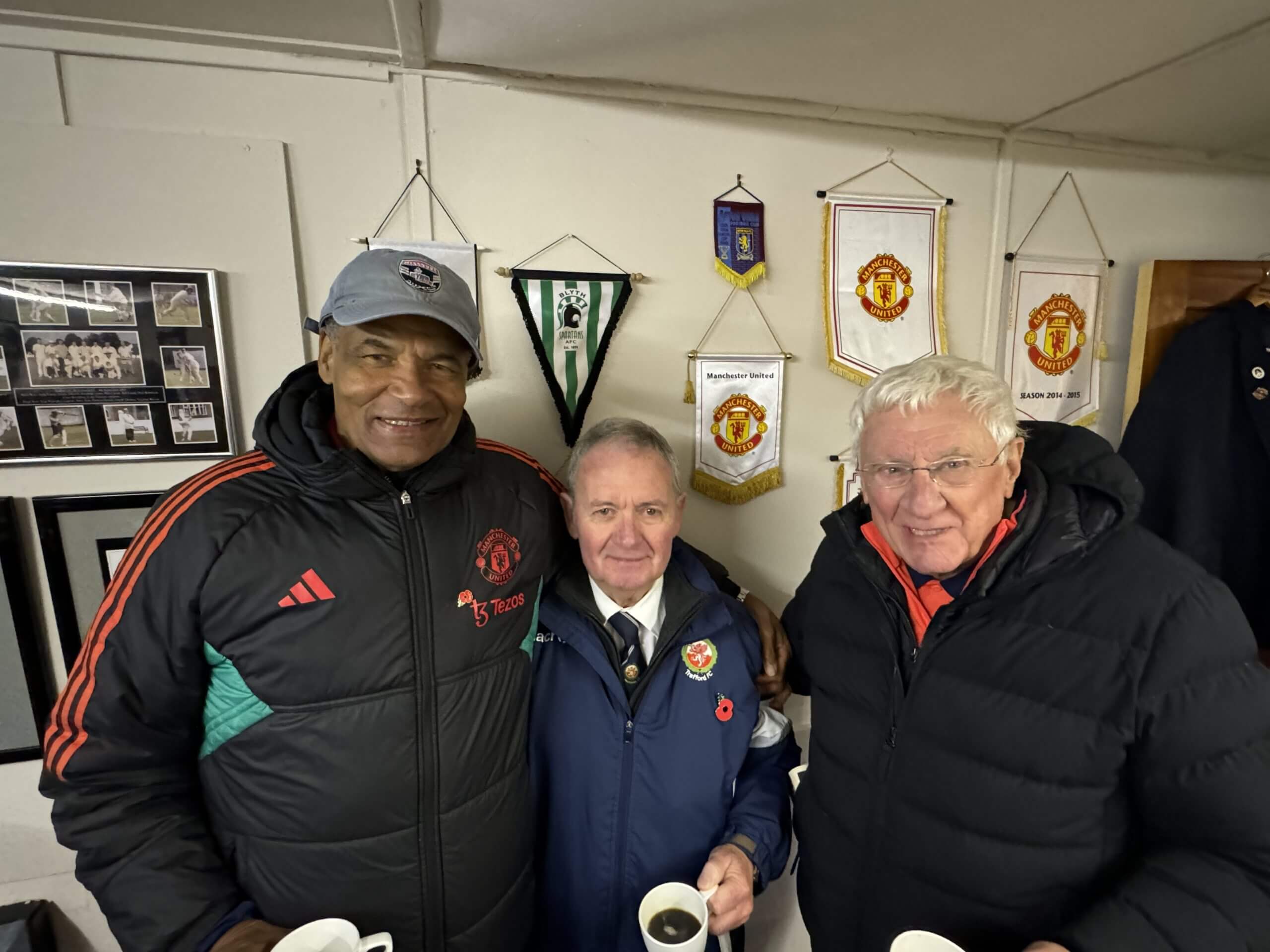
Greater Manchester has around 2.5 million residents and there are 11 professional clubs inside that area. No other area on the planet has such a concentration of professional clubs within an hour’s drive — Buenos Aires is second.
One of those clubs is Liverpool and I was supposed to head to Anfield for the Villa game, but was rejected for accreditation. Liverpool are usually good with me, but explained the press box was full as it was a big game on a Saturday night. I thought about getting a spare ticket from a Liverpool or Villa fan, but the ones I spoke to said their ticketing system has all gone digital and I needed to be a member. I am not a member of Liverpool FC.
I speak instead to Ruud van Nistelrooy. He’s really looking forward to the game against Leicester.
Sunday
There’s a 10am kick-off to see my nephew Freddie play for Ashton on Mersey Under-13s against Broadheath Central in Sale, Manchester.
The players stand for a minute’s silence (below) as it is Remembrance Sunday. Freddie knows his great-grandfather fought in World War II and was on a Royal Navy minesweeper for the Normandy landings.
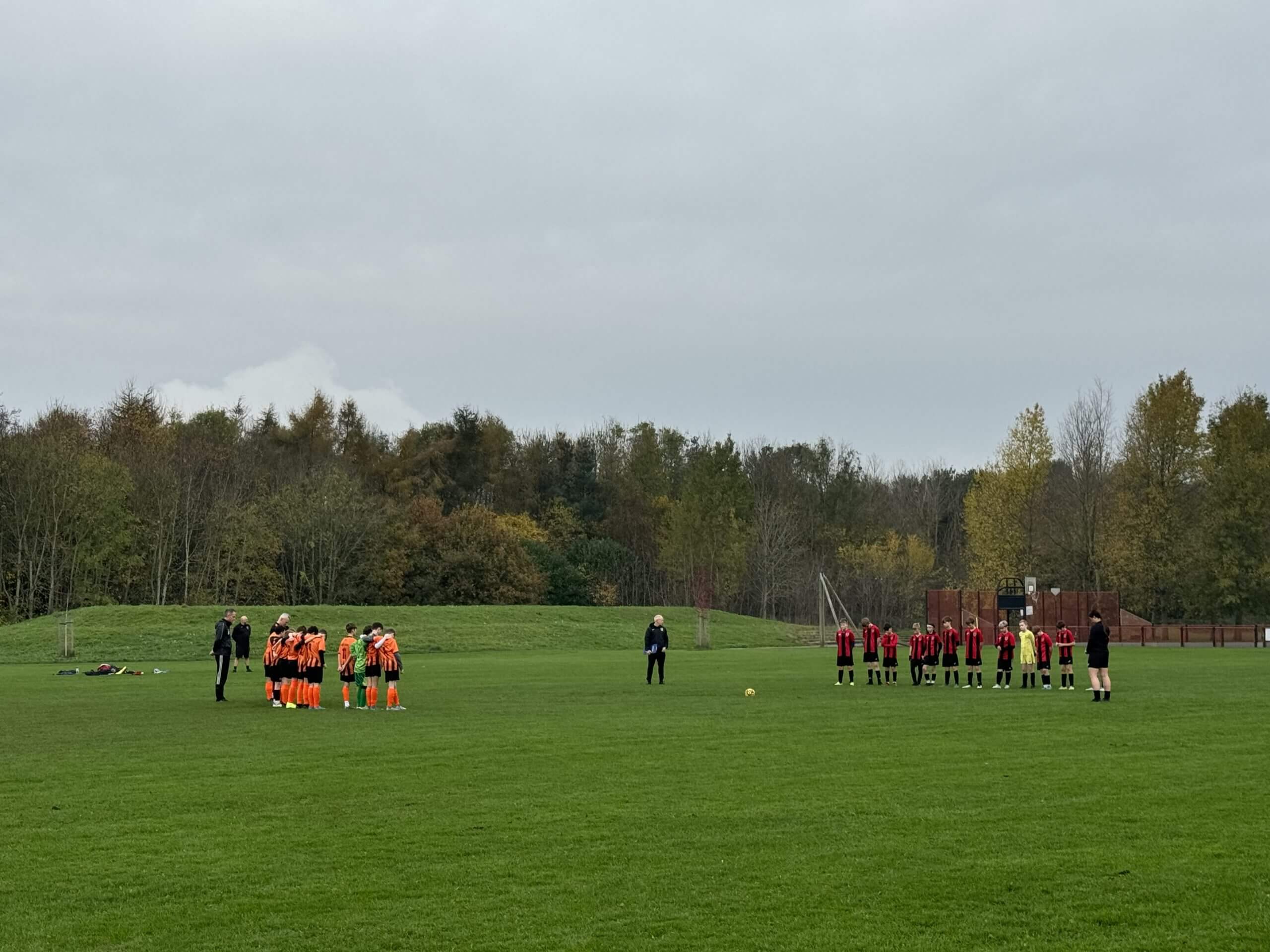
He goes to a school linked with United which young United players attend. I must leave before the end to go back to Old Trafford for the Premier League game vs Leicester City.
My concern is not one many of the other 73,000 fans descending on Old Trafford would have: rain. Wet weather means fans will not stop to buy a paper fanzine, but the rain does not get beyond a drizzle and the mood is surprisingly upbeat, the atmosphere too. It helps that United go ahead and stay ahead, which has been rare in recent times. The 3,000 Leicester fans are not impressed with the home fans and sing original songs about supporting their local team.
Van Nistelrooy salutes the Stretford End several times and then goes towards the stand at full time. It’s wonderful. Fans are singing his name, nobody knows whether they will see him again anytime soon but if he does go, there is more of a closure than when he left as a player amid acrimony in 2006.
After the game, I speak to United’s Brazilian midfielder Casemiro in Spanish, then share the quotes with the other journalists. It’s a better time for the Brazilian to speak since he’s had a good month — after a poor game against Liverpool in September.
Then I’m told to wait in a side room – for Van Nistelrooy. He wants a copy of my book, for which he’s written the foreword. He does some media and handles himself very well. He looks and talks like a top manager. He’s done well in those four games, with three wins and a draw.
“You now have the best win rate of any Manchester United manager in history,” I tell him.
“But I was only in charge for four games,” he protests. But he’s smiling. He gives me a hug, a proper hug. He’s loved every minute of being in charge of United, but it is later confirmed he is set to depart when Amorim takes charge.
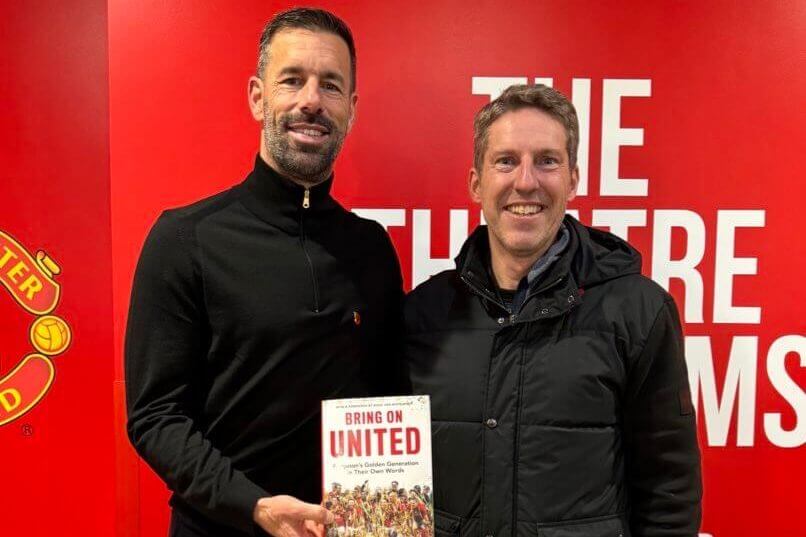
The roads around Old Trafford are still busy two hours after the final whistle and it takes almost an hour to travel the 12 miles to Leigh Sports Village, where United’s women’s side are playing.
It’s a modern 10,000-capacity stadium but I would like to see United Women and the younger men’s team playing in a purpose-built stadium by Old Trafford, not 12 miles away. Maybe one for the future.
A vocal crowd of almost 4,000 are present but the 0-0 draw with Aston Villa is not viewed well by United fans.
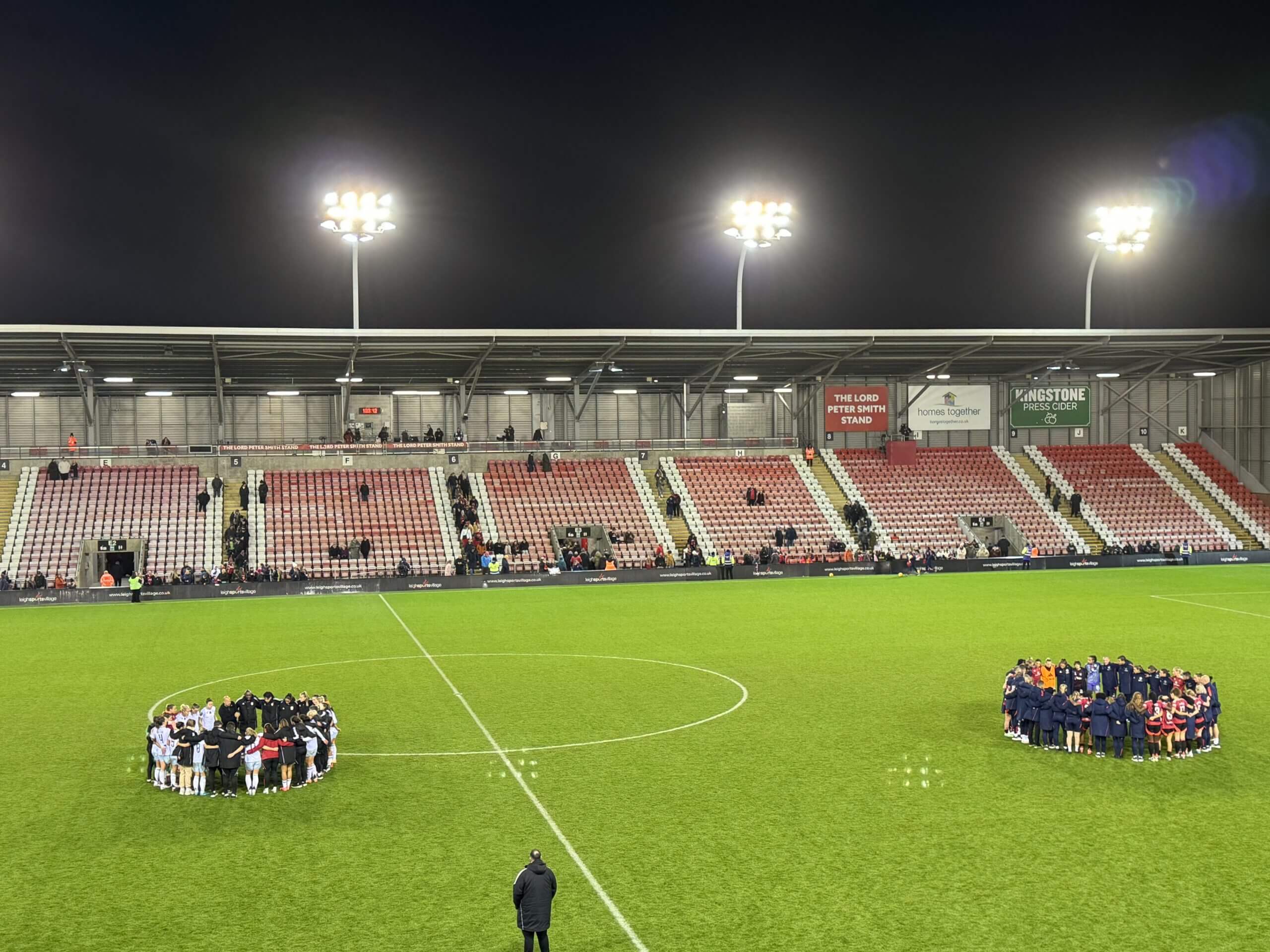
I leave the stadium having watched a third game of the day. The manager Marc Skinner is talking to a journalist. The result has not been a positive one and some fans are restless. “I perform better under more pressure,” replies Skinner. He’s certainly got that. As has his equivalent in the men’s team, new arrival Amorim.
It’ll be another day and another story in the soap opera that is Manchester United.
Bring on United: Ferguson’s Golden Generation in their Own Words, by Andy Mitten, was released last week.
(All photos: Andy Mitten)
